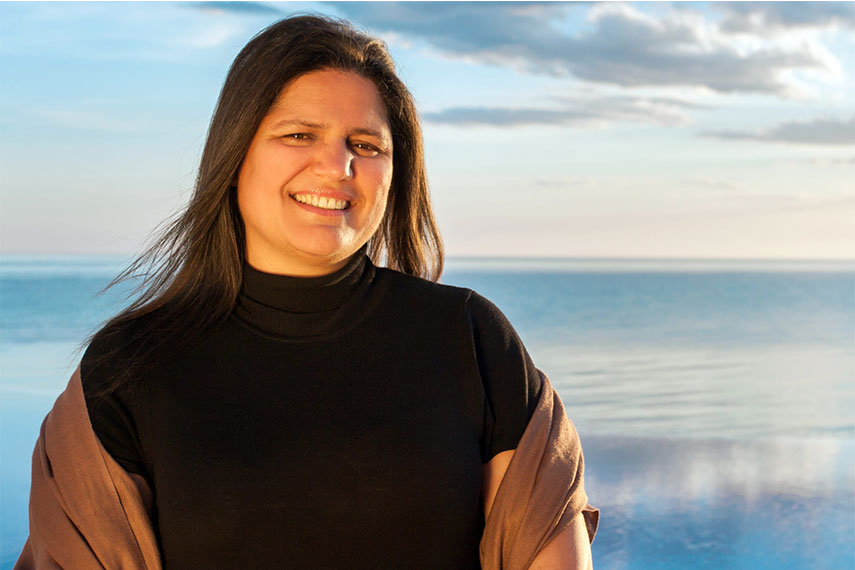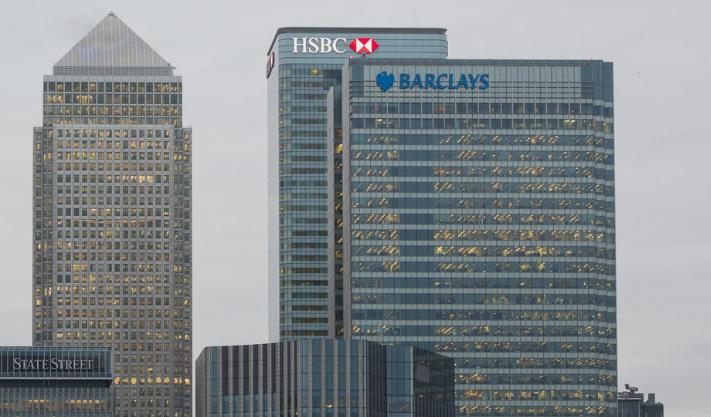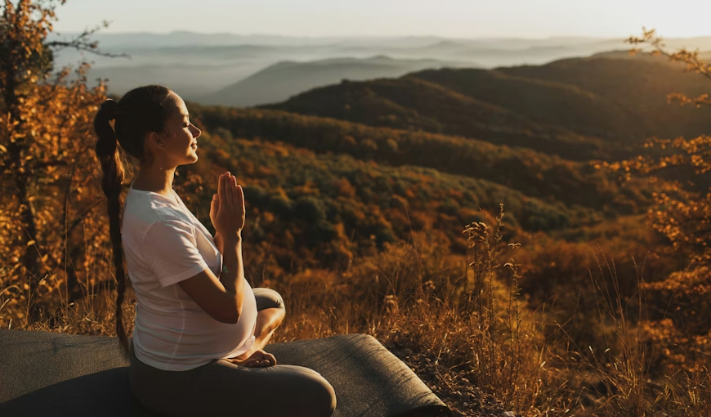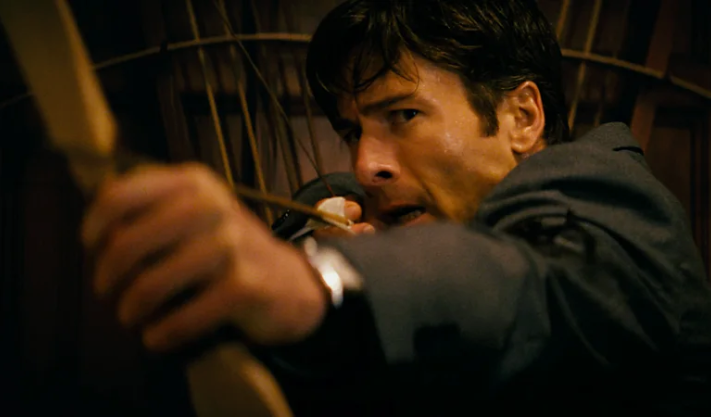Mouna Ben Halima is a well-known figure in Tunisia’s hotel industry.
She is the founder and CEO of La Badira, a luxury seaside resort in Hammamet that is celebrating its 10th anniversary this year. Her hotel has achieved something special: it is the only hotel in Tunisia that belongs to the prestigious Leading Hotels of the World group. But her influence goes far beyond tourism. Mouna Ben Halima has long been active in community work and is a strong advocate for a more open, modern, and responsible Tunisia.
A dedicated business leader and active citizen, she represents a new generation of women leaders in the country. She played a key role during the Jasmine Revolution and co-founded Bus Citoyen, a project that travels across all 22 regions of Tunisia to encourage people to vote. She supports civil society and speaks out for social, economic, and legal reforms, while warning about the dangers of authoritarian rule.
She is also involved in the nonprofit sector. She co-founded Touensa, an organization focused on civil rights, civic education, and national dialogue. She is the head of the Tunisian committee of Réseau Entreprendre. She joined the Executive Board of the Tunisian Hotel Federation (FTH) in 2017 and became the head of ATUGE (Association of Tunisians from Grandes Écoles) in 2021.
Internationally, she takes part in many forums on democracy and sustainable development, and she is recognized for helping modernize Tunisia’s hotel industry.
Her story began at age 24, when she took over the family hotel after her father passed away. Today, she runs La Badira — whose name means “as bright as the full moon.” The luxury hotel, located an hour from Tunis, is known for showcasing local craftsmanship and providing top-quality training. She took a bold risk by betting on luxury at a time when the country mainly offered vacation clubs, all-inclusive packages, and low-cost tourism. She wanted a refined, original hotel aimed at international travelers looking for high-end experiences. She rebuilt almost everything, keeping only the foundations, and worked with young architects to create a new vision.
The result is La Badira — a contemporary hotel unlike any other in Tunisia, with 130 suites, a 2,500 m² Clarins spa, an outdoor pool, seven bars and restaurants, and a semi-private beach. It is the only Tunisian hotel accepted into the Leading Hotels of the World.
Mouna Ben Halima explains:
“Today’s tourists want powerful, unique, and authentic experiences that give them strong emotions. To meet these expectations and attract modern travelers, Tunisia must make major efforts. It needs to create new concepts and highlight its heritage, attractions, food, crafts, and culture. Luxury plays an important role in improving Tunisia’s tourism image and raising its overall quality.”
She studied at Lycée Louis-le-Grand and Paris-Dauphine, holds an MBA from the Mediterranean School of Business, and graduated from the ENA in Tunis. She combines ambition and strategy with a modern and inclusive vision for Tunisia.
Tunisia’s Tourism Challenges
Tunisia is a popular destination for Europeans thanks to its sunshine, historic medinas, and warm hospitality. But behind this attractive image, the country faces serious challenges that threaten the future of its tourism industry.
The current tourism model depends too much on the summer season. When the weather cools in September, the beach season ends, which reduces jobs and slows investment. Another problem is coastal erosion, made worse by rising sea levels and older construction along the shore. Tunisia also lacks varied offerings—such as cultural tourism, wellness, desert tourism, and ecotourism—which prevents a more balanced and authentic tourism experience.
Beyond tourism, the country is losing skilled workers. Many doctors, teachers, and engineers are leaving Tunisia in search of better opportunities, creating social and economic stress. Society feels pressure from economic difficulties, political uncertainty, and a general loss of direction.
Still, Tunisia has great potential.
With a focus on sustainable, creative, and open tourism, the country can reinvent itself and become a strong, year-round destination.
The Worlds Times: La Badira is the only Tunisian hotel with the prestigious Leading Hotels of the World label. What makes your hotel so well-known?
Mouna Ben Halima: La Badira is famous mainly because it meets the luxury standards required by Leading Hotels of the World, just like other top hotels around the globe. Since true luxury is still rare in Tunisia, our hotel stands out even more.
Tunisia is mostly known for mid-range tourism. Many visitors come through tour operators on all-inclusive packages, and they do not focus on fine details or luxurious services. La Badira is different from most hotels in Tunisia, and that uniqueness makes it well-known.
The Worlds Times: As a woman, what challenges did you face when taking over the hotel?
Mouna Ben Halima: I believe my challenges were the same as those faced by any leader, whether man or woman. The real difficulties came from the situation in Tunisia after the revolution. We have airline problems, and the administrative system is extremely slow and complicated. Businesses must go through many steps to get the approvals they need.
As a woman, the hardest part for me was being away from home when my children were young. Luckily, my husband fully supported me and helped take care of our family. We worked together to keep a balance at home. I never really felt guilty, because I knew I had to give my full energy to my work.
Even though I had less time with my children, the time we spent together was meaningful. We made rules: no phones when we were with the kids, and no TV during dinner. Even if we had only an hour, it was quality time.
I never felt treated differently as a woman. The fight for women’s rights in Tunisia was carried out by earlier generations. Since 1956, Tunisian laws have given women the same rights as men—divorce, compensation, voting, work, and more. There is no pay discrimination, and abortion is legal. The only inequality that remains is inheritance law. Tunisia is still the only Muslim country where polygamy is banned. In many other countries, women still cannot divorce freely. I never had to question my equality at work.
The Worlds Times: What does Tunisia need to improve tourism?
Mouna Ben Halima: The biggest problem is our weak air service. Our national airline has too few planes and not enough money to grow. At the same time, the government does not want to open the skies to other airlines, to protect the national airline. This creates a vicious cycle. For 15 years, no one has taken courageous decisions that prioritize the country’s interests over the airline’s.
The Worlds Times: What is holding back tourism development?
Mouna Ben Halima: To be honest, the main problem is our tourism administration. The people who make decisions are too conservative. They prefer to keep things exactly as they are. They don’t travel enough to see how far other countries have advanced.
Another issue is that the tourism office has very limited power and depends on many other ministries—from heritage to transport to the interior ministry. This prevents it from creating a real tourism strategy.
Many officials still believe tourism simply means building more hotels, like in the 1980s and 1990s. They forget that real tourism growth comes from promoting our culture, history, landscapes, food, and crafts. We need to modernize how we present our traditions and heritage.
The Worlds Times: You are known for supporting democracy and civil society. Would you consider a political career?
Mouna Ben Halima: For me, being active in civil society is already a form of political engagement. I do not need to join a party or run for office to be politically involved.
However, since 2021, Tunisia has changed. The democratic progress we saw from 2011 to 2021 has ended. Many people support the return of strict control because they associate democracy with chaos. Today, freedoms are restricted again, opponents are arrested, and censorship is growing. The president has strong public support, which makes me believe the democratic period is over, at least for now.
Also, the decline in education makes people more vulnerable to populist speeches—this is happening in many countries. Populism usually comes with injustice, reduced freedoms, and a justice system controlled by politics. Some people are being held for months without evidence.
The Worlds Times: Are you planning to expand or diversify La Badira?
Mouna Ben Halima: Yes, we have two projects.
1. A boutique hotel in the Medina of Tunis.
We bought a beautifully preserved 17th-century mansion and plan to turn it into a luxury 12-room hotel. Our first building permit was rejected, so we submitted a revised version six weeks ago. The project will take a long time because the medina’s narrow streets do not allow heavy machinery—everything must be done by hand. Even removing debris takes days with wheelbarrows! We expect about three years of work before opening.
2. A 5-star mountain hotel in Aïn Draham.
We are finishing a project in a forest village called Aïn-Draham. The old Hôtel des Chênes, built in 1907, had been abandoned for 30 years. We are rebuilding it exactly as it was, turning it into a luxury five-star mountain hotel. The region feels like the Alps, with forests, red-tiled roofs, and snow in winter. The work is in its final stages—flooring, furniture, and lighting.
The Worlds Times: Will the new hotel keep its original name?
Mouna Ben Halima: Yes, we will keep the name Les Chênes because it is part of the region’s heritage. Many famous people visited the area in the 1950s and 1960s, including President Bourguiba. We are researching more of its history, especially its Italian connections. People often think Tunisia is only beaches, but we also have the desert, Berber villages, forests, and mountains. The full name of the hotel will be Les Chênes by La Badira.
The Worlds Times: Before we finish, do you have a personal anecdote to share?
Mouna Ben Halima: When I first imagined La Badira, I wanted it to feel peaceful and calm. I wasn’t sure if we could create that feeling through décor and design. But the moment we opened, people immediately felt it.
Guests started using the hashtag “calm at La Badira” on their own. It became a huge trend—everyone wanted to show they were relaxing at La Badira, posting photos at the beach or pool. It even became part of comedy shows and people jokingly used the hashtag at home while drinking coffee on their balcony! It was an amazing and funny moment for me.
Also Read:
Tim StClair-Pearce transforms plastic waste into new plastic
Hamdan Audi Alanazi: Leading Middle East–Europe green shift
Redefining Tomorrow: Dr. Pranay Misra on Tech & Critical Minerals























